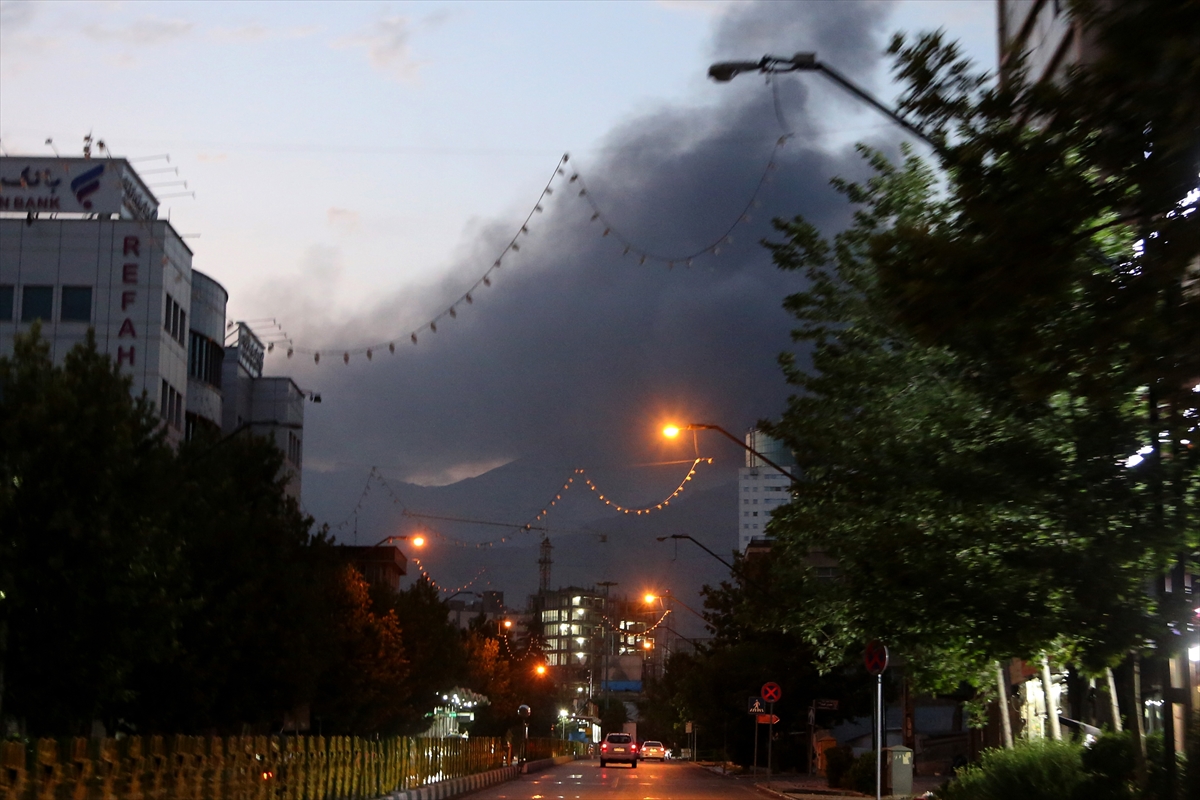
By Nadine Osman
London (The Muslim News): Downing Street repeatedly refused to confirm whether Iran has a right to defend itself against Israel’s attacks, even as PM Spokesperson continued to assert Israel had a right of self defence, during a tense press briefing on Monday. When The Muslim News asked directly whether the UK recognises Iran’s right to defend itself, the Prime Minister’s official spokesman replied: “We’ve always supported Israel’s right to self-defence and its right to protect its citizens.” Pressed again on Iran, reminding him that it was Israel that began the attacks, the spokesman said only: “This is a dangerous moment for the region, and we want to see de-escalation and restraint” — notably without applying the same standard to Tehran.
The UK has deployed additional fast jets and refuelling aircraft to the Middle East in response to the escalating crisis. Officials described the move as “contingency support” for allies and denied it was to support Israel against Iran’s retaliation attacks.
“We have not participated in military action in the defence of Israel in recent days,” the spokesman said. Pressed further, he added that the deployment was intended “to provide contingency support to our partners in the Middle East and in case of further escalation.”
At the same time, the Foreign Office updated its travel advice, warning against all travel to Israel and the occupied Palestinian territories following Iran’s missile strikes, and stressing that the situation “has the potential to deteriorate further quickly and without warning.”
The government’s response follows revelations that Israel recently considered assassinating Iran’s Supreme Leader, Ayatollah Ali Khamenei — a plan reportedly vetoed by US President Donald Trump. Two senior US officials told Reuters that Israel had informed Washington it had an opportunity to carry out the killing, but Trump waved them off.
“Have the Iranians killed an American yet? No. Until they do, we’re not even talking about going after the political leadership,” one official said. Trump has remained in frequent contact with Israeli Prime Minister Benjamin Netanyahu and was fully briefed on the Israeli strikes.
Netanyahu, asked about the report during a Fox News interview, dismissed it: “There are so many false reports of conversations that never happened, and I’m not going to get into that.”
In London, Prime Minister Keir Starmer’s spokesman declined to comment: “We wouldn’t comment on private conversations or intelligence matters.”
Despite repeated calls for “de-escalation from all parties,” the UK’s diplomatic efforts have largely focused on traditional allies. The Foreign Secretary has spoken with counterparts in the US, France, Germany, Italy, the EU, Saudi Arabia, the UAE, and Oman. The Prime Minister has held calls with leaders from Israel, the US, France, Germany, Saudi Arabia, the UAE, Canada, and Italy. There has been no indication of any direct UK engagement with Iranian officials.
Meanwhile, the government is closely monitoring the economic implications of instability in the region.
“We know global events have an impact at home through supply chain disruption or changes in energy prices,” the spokesman said. “While oil and gas prices remain in line with market levels seen over the last year, we’re continuing to monitor the situation closely.”
Policy on Iran’s nuclear programme remains unchanged. Asked whether the UK supports Israel’s calls for international military action against Iran’s nuclear facilities, the spokesman responded: “Our position remains that we want to see de-escalation and a diplomatic solution.”
On the possibility of proscribing Iran’s Islamic Revolutionary Guard Corps, he added: “There are numerous sanctions in place against the IRGC,” without signalling any further steps.
Former Israeli Justice Minister Yossi Beilin said the Israeli government likely understands it cannot destroy Iran’s nuclear programme with airstrikes alone — and not without American support.
“At a certain point, we will have to declare that we succeeded in deferring the moment of nuclearisation but not to eliminate it — unless the United States is entering the scene,” he said.
Beilin described the region as facing a defining moment: “It’s a new situation, and all of us — the Arab and Muslim countries — we will have to decide, ‘What are we doing?’” He drew a parallel with 1991, when then-US President George H.W. Bush brought regional leaders together in Madrid for a historic push toward stability.
“Eventually, there’s no real reason why Iran and Israel can’t have agreements and peace,” he added.
As the crisis deepens, the UK’s refusal to recognise Iran’s right to self-defence — in contrast to its steadfast backing of Israel — continues to draw scrutiny. The government insists it is working to reduce tensions and promote stability, but its asymmetric messaging and narrowly focused diplomacy reflect the difficult balance between strategic allegiance and the appearance of neutrality.
[Photo: Smoke rises from the area where Israeli forces struck the Iranian state television building during live transmission in Tehran, Iran on June 16, 2025. The Iranian Radio and Television Broadcasting Corporation (IRIB) reported in a statement that their building in the capital Tehran was targeted by Israel. Photojournalist: Fatemeh Bahrami/AA]